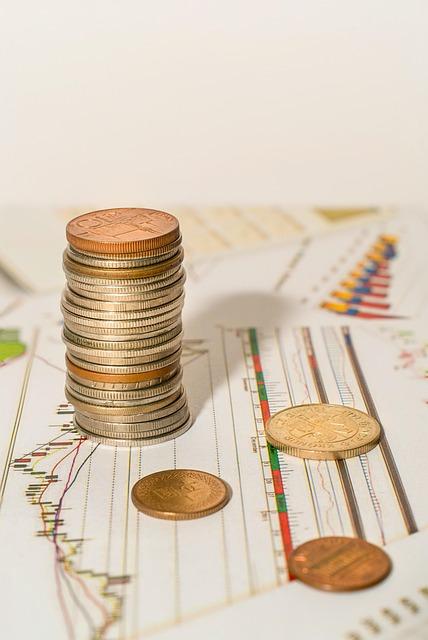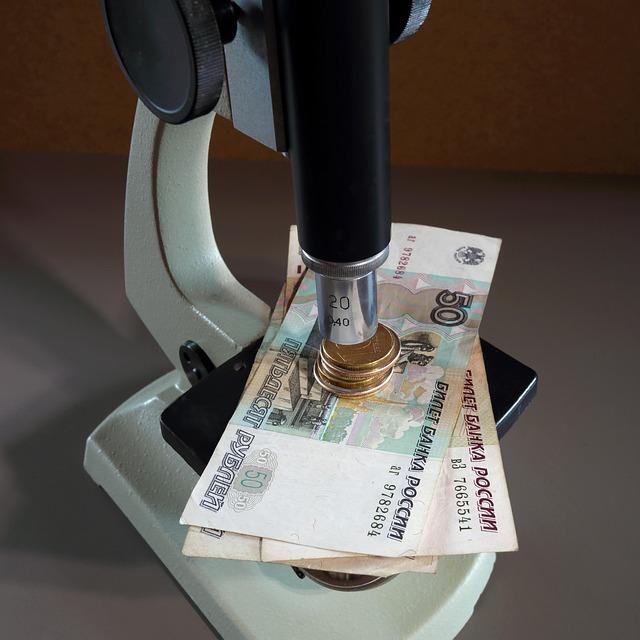If you’ve ever wondered what someone who actually gets the economy thinks about today’s market chaos,you’re in the right place. With headlines flashing about inflation spikes, stock market swings, and whispers of recession, it’s easy to feel overwhelmed or confused. But here’s the deal: behind all the jargon and number crunching, economy experts have their own takes—sometimes surprising, sometimes bluntly honest—that cut through the noise. Let’s dive into what they really think about where the market stands right now and what it means for you.
Understanding the Real Drivers Behind Market Fluctuations
When we dig beneath the surface of stock tickers and economic headlines,it becomes clear that market ups and downs aren’t just random chaos—they’re shaped by a confluence of deeper currents. Investor sentiment,such as,plays a massive role. Fear and greed tend to amplify moves way beyond what fundamentals really justify. Then there’s the influence of central banks, whose policy tweaks ripple across currencies, bonds, and equities alike.And let’s not forget how global events—from geopolitical tensions to supply chain hiccups—can suddenly shift the landscape with little warning.
To keep things digestible, here’s a fast look at some of the real forces at play:
- Monetary Policy: Interest rate changes and quantitative easing directly impact liquidity.
- Corporate Earnings: Profit reports still sway stock valuations despite buzzwords.
- Global Sentiment: investor mood swings triggered by news cycles and social trends.
- Technological Advances: Innovations that create new markets and disrupt old ones.
| Driver | Short-Term Impact | Long-Term Effect |
|---|---|---|
| Central Bank Moves | Immediate volatility spike | Shifts investment strategies |
| Earnings Surprises | Price gaps at open | Confidence in sector growth |
| Political Events | Market jitters | Changes in trade policies |
why Inflation Is Both a Problem and an Opportunity Right Now
Inflation frequently enough gets a bad rap for eroding purchasing power,but the story isn’t that simple. Yes, rising prices can pinch your wallet, making everyday goods more expensive and creating uncertainty for businesses and consumers alike. However,when managed carefully,inflation can actually stimulate economic growth by encouraging spending and investment. For example, when prices are expected to rise, consumers are more likely to buy now rather than later, fuelling demand and helping companies expand. On the flip side,inflation can erode the real value of debt,which is great news for borrowers,including governments with large deficits.
Here’s a quick look at the dual nature of inflation:
- Challenges: Higher costs for essentials, pressure on fixed incomes, and potential for wage-price spirals.
- Opportunities: Incentives to invest in assets like real estate or stocks, reduced debt burden, and potential business growth through increased demand.
| Inflation Impact | Example | Effect |
|---|---|---|
| consumer Prices | gasoline goes up 10% | More expensive commutes |
| Borrowers | Mortgage payments fixed | Debt easier to repay |
| Investors | Stock prices rise | Portfolio gains increase |

The Role of Tech Stocks in Shaping Today’s Economic Landscape
Tech stocks have morphed into more than just investment options—they’re the heartbeat of modern economies. Their growth doesn’t just reflect company profits; it signals shifts in consumer behavior, innovation cycles, and even global competitiveness. Companies like Apple, Microsoft, and tesla wield outsized influence, driving trends from AI breakthroughs to renewable energy adoption. Investors aren’t just betting on product lines; they’re placing wagers on how technology reshapes everything from healthcare to transportation. This dynamic has caused a ripple effect, where economic indicators tied to customary sectors are increasingly intertwined with tech performance.
It’s captivating to see how these companies impact the broader market in unexpected ways. such as, when a major tech giant announces a new product or pivot, it often triggers:
- Supply chain adjustments — affecting logistics and manufacturing worldwide
- Shifts in employment trends — creating new job categories while phasing out others
- Capital flow redistribution — funding moves rapidly between industries and geographies
| Tech Sector | Economic Influence |
|---|---|
| Artificial Intelligence | Automation & productivity gains |
| Cloud Computing | Enabling remote work & digitalization |
| Renewable Tech | Driving sustainable investments |
Ultimately, understanding today’s economy means reading between the lines of tech stock movements. Their far-reaching tentacles touch almost every aspect of the market,making them indispensable barometers for where the economy is headed next.
What Economic Indicators You Should Actually Be Watching
when navigating the complex world of economics, focusing on the right indicators is crucial. Forget obsessing over daily stock market swings or headline inflation numbers alone. Rather, keep an eye on real-time consumer spending patterns, which reflect how confident people feel about the economy. Another underrated but powerful indicator is corporate earnings forecasts. These projections often reveal business sentiment before it’s reflected in stock prices. Plus, don’t underestimate the value of small business sentiment surveys—they’re the grassroots pulse of economic health, highlighting potential shifts before the big players even react.
Here’s a quick cheat sheet of must-watch indicators that can give you a sharper view of where things are headed:
- Personal Consumption Expenditures (PCE) Price Index: A better gauge of inflation than the CPI.
- Yield Curve: A reliable predictor of recessions when inverted.
- Job Openings and Labor Turnover Survey (JOLTS): Shows labor market versatility and wage pressure.
- Manufacturing PMI: Signals supply chain health and production trends.
| Indicator | What It Shows | Why It Matters |
|---|---|---|
| PCE Price Index | Inflation trends | More accurate inflation measure for policy decisions |
| Yield Curve | Interest rate expectations | Predicts potential recessions or growth |
| JOLTS Report | Job market dynamics | Insight into employment strength and wage growth |
| Manufacturing PMI | Industry activity | Indicates economic expansion or contraction |
Smart Moves to Protect Your Wallet Amid Market Uncertainty
When the market feels like a rollercoaster, staying calm and informed is your best bet. Rather of chasing quick returns, focus on building a resilient financial foundation. Think of your money like a garden — it needs consistent care, not wild swings of attention.Prioritize maintaining an emergency fund that covers at least 3-6 months of expenses. This safety net becomes your shield during unexpected turns. Also, diversify your investments beyond traditional stocks and bonds. Consider including assets like real estate, commodities, or even peer-to-peer lending to spread risk efficiently.
Another savvy move is to stay flexible with your financial goals. Markets are unpredictable, so adapting your strategy can prevent you from feeling trapped. Here are a few practical tips to keep your wallet secure:
- Automate savings: Take advantage of automatic transfers to build wealth steadily without second-guessing.
- Reassess debt: Lower-interest loans during uncertain times can be a relief; don’t shy away from consolidating.
- Prioritize quality: Invest in companies with strong balance sheets and consistent cash flows.
| Strategy | Why it effectively works | Quick Tip |
|---|---|---|
| Diversification | Reduces overall risk exposure | Mix asset classes,not just stocks |
| Emergency Fund | Provides financial breathing room | Keep liquid and accessible |
| Debt Management | Improves cash flow & credit score | Consolidate and refinance wisely |
Q&A
Q&A: What an Economy Expert Really Thinks About Today’s Market
Curious about what’s really going on with the economy? we sat down with Alex Martinez,a seasoned economy expert,to get the lowdown on today’s market. Here’s what they had to say — no jargon, just the real deal.
Q: So, Alex, what’s your overall take on today’s market? Is it looking good or shaky?
A: Honestly, it’s a mixed bag. We’re seeing some solid growth in certain sectors like tech and green energy,which is exciting. But on the flip side, inflation and supply chain hiccups are still causing headaches. so it’s not a clear-cut “yay” or “nay” — more like a cautious thumbs up.
Q: Inflation’s been a hot topic lately. How worried should we be?
A: Inflation is definitely something to watch. It’s higher than what we’d like,which means everyday stuff costs more — groceries,gas,you name it. But central banks are on it, trying to balance things out without killing growth. My advice? Keep an eye on prices but don’t panic. It’s a bumpy ride, not a crash.
Q: What about jobs? are we facing a recession or is the labor market still strong?
A: the labor market is surprisingly resilient.Job numbers are good, and wages are creeping up. Having mentioned that, some industries are struggling more than others. So for most people, job security is pretty solid right now, but it’s smart to keep your skills sharp and stay flexible.
Q: With all the talk about tech stock volatility,is now a bad time to invest?
A: if you’re investing for the long haul,it’s never “perfect” timing — there will always be ups and downs. Tech stocks fluctuate, sure, but innovation isn’t slowing down. just don’t put all your eggs in one basket and be ready for some rollercoaster moments.
Q: Any surprising trends you think people aren’t paying enough attention to?
A: Definitely the shift toward sustainability and green energy. It’s not just a buzzword; companies and governments are investing big time. that’s shaping markets and jobs in ways most people haven’t fully grasped yet.
Q: Final thoughts — what should everyday folks keep in mind about the economy right now?
A: Stay informed but don’t get overwhelmed by the noise. The economy is like a big, complicated puzzle — pieces move all the time. Focus on your personal finances, keep an emergency fund, and think long-term. The market has it’s twists, but with patience and smarts, you can ride it out.
Got more questions about the market? Drop them in the comments below and maybe we’ll ask Alex again!
The Way Forward
So there you have it—a no-fluff peek into what an economy expert truly thinks about today’s market. It’s a mix of caution, curiosity, and a dash of optimism, reminding us that while the numbers can be tricky, understanding the bigger picture always helps. Whether you’re a seasoned investor or just someone trying to make sense of the news, keeping these insights in mind might just give you a clearer view of what’s ahead. Stay curious, keep questioning, and hey—markets might potentially be unpredictable, but your ability to learn isn’t. Catch you in the next post!











